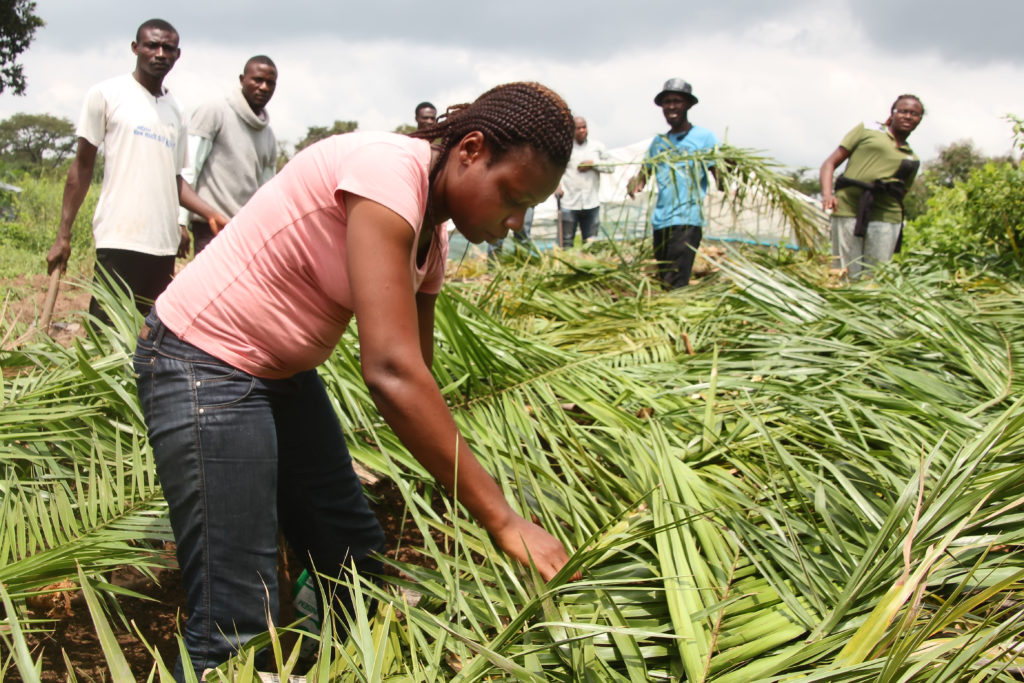When the Dutch-funded 2SCALE programme set out more than a decade ago, its goal was to bridge the gaps in Nigeria’s agricultural value chain by creating inclusive agribusiness models.
As the initiative draws to its conclusion, its mission is evident in 13 formalised partnerships spanning dairy, oil palm, staples, oil seeds and fresh produce.
In an interview with BusinessDay, the programme director, Marina Diboma, explains how the initiative became a model for inclusive business in agriculture, boosting farmer incomes, enhancing productivity and building resilience against climate disasters.
Notable among 2SCALE’s impacts is its agribusiness cluster model, which fosters collaboration between small-scale farmers, processors, SMEs and traders. Together with stronger market linkages, this system created a culture of partnership previously thought impossible in Nigeria’s fragmented agricultural landscape.
Women, once sidelined in farming communities, have emerged as micro-processors of dairy products, sorghum porridge and cassava flour, while youth have taken on new jobs as retailers and distributors. By ensuring women and vulnerable groups were involved in decision-making within cooperatives, the programme tackled systemic imbalances.
The COVID-19 pandemic exposed the fragility of the national food systems. 2SCALE assisted farmers to cultivate resilience in the face of the global crisis through flexible partnerships, digital finance tools and climate-resilient practices.
Innovations such as solar-powered irrigation, disease-tolerant crop varieties and eco-efficient farming have allowed Nigerian farmers the ability to withstand climate disruptions.
2SCALE’s leading solutions demonstrate that those affected by the problems are best suited to lead the solutions. This model certainly holds crucial lessons for Nigeria’s agricultural policymakers.
The programme officially wraps up in December 2025—but its impacts remain established. Strategic partnerships with organisations like the Institute of Agribusiness Management Nigeria (IAMN) and the Inclusive Agribusiness Clubs (IACs) are helping to advance 2SCALE’s resources into national systems.
These institutions are now positioned to sustain inclusive agribusiness practices, influence national policy and foster collaboration among stakeholders long after donor funding ends. Such knowledge transfer and institutional strengthening show that 2SCALE is a blueprint for long-term agricultural transformation in Nigeria.
2SCALE’s successful outing in Nigeria demonstrates that the country’s challenges, though daunting, are not insurmountable. The programme’s achievements—higher yields, access to finance worth over €17 million, thousands of non-farming jobs and thriving cooperatives—offer a roadmap for scaling solutions nationwide.
The government, private-sector investors and civil society can leverage this model, which illustrates that solutions are created when farmers, SMEs, women and youth have a stake.
The Dutch-funded 2SCALE programme, launched over a decade ago, aimed to bridge gaps in Nigeria's agricultural value chain by developing inclusive agribusiness models. As the programme nears completion in December 2025, it boasts 13 formalised partnerships in various sectors including dairy, oil palm, and fresh produce. These collaborations have led to increased farmer incomes, productivity, and resilience against climate changes. Particularly impactful is the agribusiness cluster model that engaged small-scale farmers, women, and youth in roles previously inaccessible to them, fostering a culture of partnership in Nigeria’s fragmented agricultural landscape.
The programme effectively addressed challenges posed by the COVID-19 pandemic and climate disruptions through flexible partnerships, digital finance tools, and innovations like solar-powered irrigation and disease-tolerant crops. Notably, it emphasized the importance of inclusive decision-making and led to systemic changes by involving women and vulnerable groups. 2SCALE's approach provides critical lessons for Nigerian policymakers and demonstrates that systemic agricultural challenges, while daunting, can be resolved through inclusive, locally-led solutions.
As the initiative winds down, momentum continues with strategic partnerships with institutions like the Institute of Agribusiness Management Nigeria and the Inclusive Agribusiness Clubs to sustain its impacts. By transferring knowledge and strengthening institutional capacities, 2SCALE is poised to foster long-term transformation in Nigerian agriculture. The programme's achievements—enhanced yields, access to over €17 million in finance, job creation, and thriving cooperatives—serve as a model for scaling solutions nationwide. Its legacy underscores the power of stakeholder collaboration in developing sustainable solutions.






